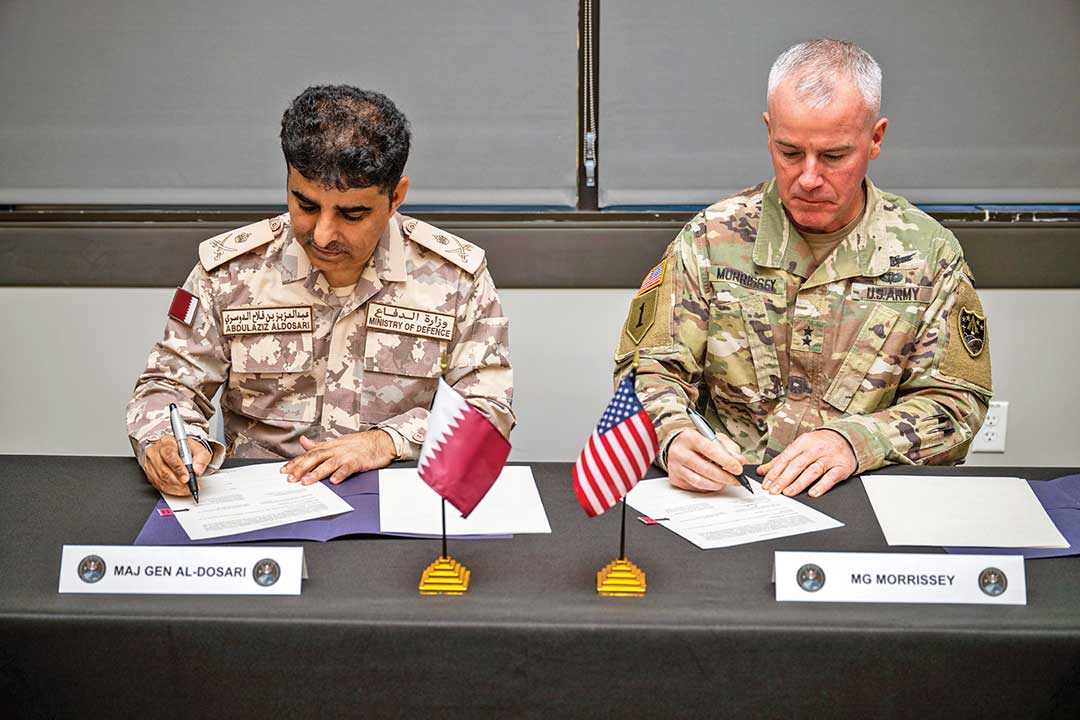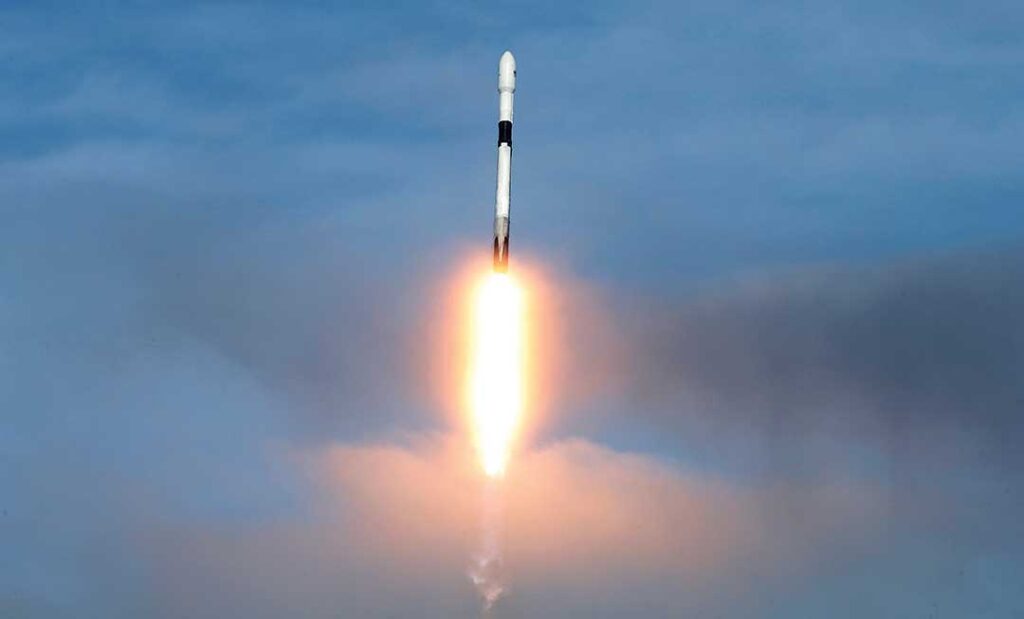UNIPATH STAFF
For Qatar, among the latest countries to sponsor a domestic space program, the need for reliable surveillance above the Earth’s atmosphere is critical. Space debris, unknown objects, and electromagnetic disturbances require tracking to ensure the effective operations of Qatar’s communication satellites.
On October 23, 2023, the Qatar Armed Forces signed a Space Situational Awareness data sharing agreement with U.S. Space Command (USSPACECOM) designed to provide improved surveillance of the increasingly cluttered space above Earth.
Qatari Maj. Gen. Abdulaziz Al Dosari, advisor to Qatar’s deputy prime minister and minister of state for defense affairs for space and telecommunications, signed the agreement with U.S. Army Maj. Gen. Michael Morrissey, director of U.S. Space Command’s strategy, plans and policy directorate.
The agreement authorizes the exchange of information and enhances the safety, stability, security and sustainability of space for everyone.

“This strategic collaboration marks a significant milestone in advancing our space situational awareness, underlining our commitment to fostering global security and cooperation. This agreement underscores the mutual commitment to sharing data with our esteemed counterparts in the U.S. Space Force that enhances both nations’ capabilities in monitoring and understanding activities in space,” Maj. Gen. Al Dosari said.
“The objectives of this collaboration extend beyond national borders, aiming to bolster global space security, prevent potential threats and foster international cooperation in the ever-evolving domain of space exploration and utilization. The joint efforts are poised to contribute to the peaceful and secure use of space for the benefit of both Qatar and the United States while ensuring the peaceful and secure utilization of this vital domain for the benefit of both nations and the broader global community.”
Qatar announced it was entering the space age with the launch of the communications satellite Es’hail from French Guiana in 2013. Its next satellite, Es’hail 2, took off from Florida in 2018 to reach geostationary orbit 36,000 kilometers above the planet.
To support aeronautical and aerospace development in the country, it founded the Qatar Aeronautics and Space Agency. Qatar and the U.S. Aeronautics and Space Administration (NASA) are cooperating on another project to launch a specialized scientific satellite to identify undiscovered aquifers in the desert, a special concern for arid countries in the Middle East.
While the Qatari delegation was in the U.S. state of Colorado to sign the agreement with U.S. Space Command, USSPACECOM extended an invitation to the Qatari Armed Forces to attend Global Sentinel 2024 at Vandenberg Space Force Base in the state of California.
Global Sentinel, USSPACECOM’s premier security cooperation event, is designed to strengthen international partnerships, improve operational collaboration and promote responsible behavior in the space.
Among the information more widely available to Qatar through the agreement with USSPACECOM are collision alerts to avoid destruction of satellites, fragmentation analysis to track new debris from activities in space, and reentry data to assess the threat to people on the ground from space junk plummeting toward Earth.
USSPACECOM has signed more than 170 Space Situational Awareness data sharing agreements with partners from the commercial sector, academia and foreign and intergovernmental agencies eager to ensure responsible behavior in space.
“By fostering strong international alliances, we not only protect our way of life but also exemplify the peaceful use of space for all,” Maj. Gen. Morrissey said. “We’re happy to be strengthening our already great relationship with Qatar.”
Sources: USSPACECOM, Doha News, NASA, the United Nations

